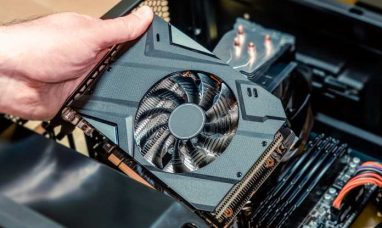The semiconductor industry has always been at the forefront of technological advancements, driving innovations across various sectors. Companies like NVIDIA (NASDAQ:NVDA) and Intel (NASDAQ:INTC) have been pivotal in this domain, especially in the realm of processors and graphics chips. The recent trends indicate a significant shift in market dynamics that could reshape the future of these stocks.
One of the most notable trends is the increasing demand for high-performance computing (HPC) and artificial intelligence (AI) applications. NVIDIA has been a leader in this space, with its GPUs being widely adopted for AI and machine learning tasks. The company’s latest release, the NVIDIA A100, has set new benchmarks in performance, making it a preferred choice for data centers and AI researchers.
Intel, on the other hand, has been focusing on expanding its footprint in the AI and data center markets. The launch of its 3rd Gen Intel Xeon Scalable processors has been a significant step in this direction. These processors are designed to handle the most demanding workloads, offering enhanced performance and security features.
Another critical aspect influencing the market is the ongoing global chip shortage. The pandemic-induced supply chain disruptions have led to a severe shortfall in semiconductor production, affecting various industries from automotive to consumer electronics. Companies are now investing heavily in expanding their manufacturing capacities to meet the growing demand.
In addition to supply chain challenges, geopolitical tensions have also played a role in shaping the semiconductor market. The US-China trade war has led to increased scrutiny and restrictions on semiconductor exports, impacting companies like Huawei and ZTE. This has further fueled the need for countries to invest in domestic chip production capabilities to ensure a steady supply of critical components.
One of the emerging trends in the semiconductor industry is the shift towards more energy-efficient and sustainable technologies. Companies are now focusing on developing chips that consume less power and offer better performance, aligning with global sustainability goals. For instance, NVIDIA’s new GPUs are designed to deliver superior performance while reducing power consumption, making them ideal for energy-efficient data centers.
Moreover, the rise of 5G technology is expected to drive significant growth in the semiconductor market. The deployment of 5G networks requires advanced chips to support higher data speeds and lower latency. Companies like Qualcomm (NASDAQ:QCOM) are at the forefront of this transition, offering cutting-edge solutions for 5G infrastructure and devices.
Investors are closely watching these developments, as they could have a profound impact on the valuation of semiconductor stocks. The companies that can navigate these challenges and capitalize on emerging opportunities are likely to see robust growth in the coming years.
In conclusion, the future of processor and graphics chip stocks looks promising, with several growth drivers on the horizon. Companies like NVIDIA, Intel, and Qualcomm are well-positioned to lead the industry, thanks to their strong product portfolios and strategic investments in new technologies. However, they must also address the challenges posed by supply chain disruptions and geopolitical tensions to sustain their growth momentum.
Footnotes:
- The semiconductor industry drives innovation across sectors. Source.
- NVIDIA’s GPUs are favored for AI and machine learning tasks. Source.
- Intel’s 3rd Gen Xeon processors target high-demand workloads. Source.
- The global chip shortage affects multiple industries. Source.
- The US-China trade war impacts semiconductor exports. Source.
- Energy-efficient technologies align with sustainability goals. Source.
- 5G technology is a key growth driver for semiconductors. Source.
Featured Image: Megapixl @ Alexandersikov















